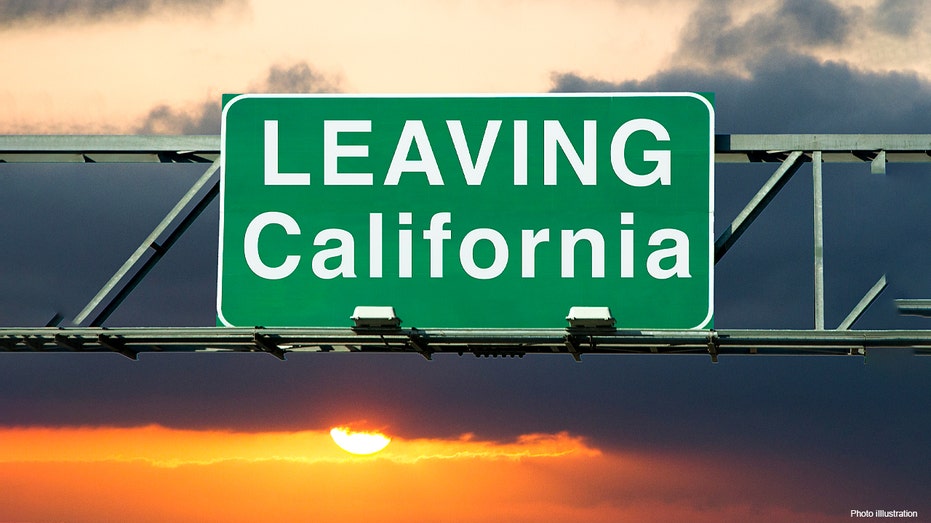Peter Rex, the CEO of Rex, a technology, investment and real estate firm that moved from California to Texas, argues his company would not ‘flourish’ under a 32-hour workweek.
California is destroying an industry that working families and job creators desperately need.
Insurance companies are now leaving the state due to the burdensome government bureaucracy. Will other states learn from this and foster competition and innovation, or will they follow California’s footsteps, leaving citizens with limited options and skyrocketing prices?
This question needs to be answered urgently because the largest property insurer in the nation, State Farm, has announced that it will no longer sell home insurance policies in California. This decision follows a similar move by insurance giant GEICO, which closed all sales centers in the state last year.

Insurance companies are now leaving California due to government bureaucracy. (istock / iStock)
Experts have shown how insurance companies have been quietly leaving the state for years. This is a crisis created by the state itself, and its consequences are disproportionately affecting families and small businesses.
As the CEO of insurance and real estate companies, I moved my business out of California several years ago because it became more difficult to serve customers. I believe that State Farm had no choice but to leave California. If it had stayed, it would have been regulated to the point of extinction.
This reality is evident in State Farm’s announcement. The company attributes its decision to “increases in construction costs outpacing inflation, rapidly growing catastrophe exposure, and a challenging reinsurance market.”
While these are real issues, any insurance company can incorporate them into their policies. What cannot be priced in is government control and excessive regulation. That is what is truly driving State Farm out of California.
Fox News contributor Douglass Murray looks ahead to 2024 and other possible presidential contenders for the Republican ticket on ‘The Bottom Line.’
Consider what State Farm has experienced in recent years. In response to rising costs, the company attempted to increase the price of fire insurance. However, the state forced the company to reduce rates. This is a sure way to drive companies out of business, as they cannot generate sufficient revenue to cover claims. It appears that California classrooms do not teach Economics 101.
This example demonstrates the burdensome red tape that insurance companies face from all directions. The California Department of Insurance holds significant power, deciding what policies companies can offer, the prices they can charge, and their day-to-day operations. At that point, a company becomes more like an extension of the state than an independent entity.
The government is also responsible for the high costs highlighted by State Farm. The state’s failure to allocate enough funding for forest thinning has exacerbated the severity of wildfires, the number one issue that experts state should be addressed to prevent fires.
PublicSq. founder and CEO Michael Seifert and Colombier Acquisition Corp Chairman and CEO Omeed Malik discuss the company’s decision to relocate its headquarters from California to Florida.
When it comes to home prices, California has made them more expensive by mandating that new homes include expensive features like solar panels, which can cost $20,000 or more. This helps explain why California home prices are over twice the national average.
While climate change may play a role, it is ultimately California’s economic climate that is causing companies to leave and leaving families in a vulnerable position. In their efforts to crack down on insurance companies, the state is actually hurting everyday people who rely on insurance for their homes, cars, and health.
Working families will bear the brunt of this government-driven exodus, yet their needs are receiving the least attention.
Peter Rex, founder and CEO of Rex Teams, joins Pete Hegseth on ‘Fox & Friends.’
The situation could worsen. When insurance companies withdraw from a state, competition decreases and prices go up. Families and job creators will end up paying even more for insurance. If California continues to exert control over the insurance market and impose excessive regulations, more companies will leave.
GET FOX BUSINESS ON THE GO BY CLICKING HERE
Consider the implications of insurance companies completely exiting a state. There will be a lack of options, and home insurance may become unattainable. At that point, everyone will have to rely on the state’s minimal home insurance plan. Lawmakers will be forced to raise taxes even higher, exacerbating the crisis in a state already grappling with issues like homelessness and high gas prices.
California is learning this the hard way, but other states and even Washington, D.C. do not have to follow suit. Elected officials should strive to promote competition and keep costs low by minimizing mandates and avoiding excessive government interference. California’s example demonstrates that the heavier the government’s hand, the more it hurts the very people it intends to help.
CLICK HERE TO READ MORE FROM PETER REX












